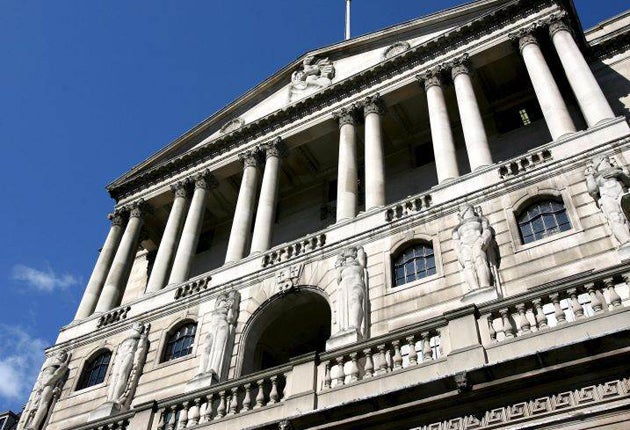Coronavirus bites government bid to rush workers back to offices as Bank of England warns on economy
The Bank says the recovery has surpassed its expectations but is worried that coronavirus and Brexit could derail that as new restrictions are imposed on the northeast, James Moore writes


Back to the office! That was the message from the government just a few short days ago. Its lickspittles duly chimed in with supportive commentary.
Offices, we love ’em and if you don’t go back to yours you’ll never get promoted. Your boss might not even believe you’re working. It could be you that gets clipped when the redundancy axe falls, so hurry back in there and bring the coffees with you.
This missed something that progressive, forward-looking and successful companies are increasingly aware of: offices were starting to look like an analogue product for a digital world before any of this happened.
The realities of the killer virus we’re struggling to deal with have only served to ram the point home.
Against the backdrop of rising Covid cases, the recent comments made by health minister Edward Argar are very telling. He notably failed to ruled out a resumption of the advice that all workers who could do their jobs from home should do so, falling back on the “no plans at the moment” line before moving on to the government’s much-discussed “rule of six”.
Soon after, new restrictions were imposed upon the northeast in a bid to turn back the rising coronavirus tide.
The hard fact is that the government decided to roll the dice with epidemiology in favour of the economy, and particularly the parts of it that cater for a commuting workforce despite warnings of town centres becoming ghost towns. And it got burnt.
Panic is powerful, and for a few days the “ghost town Britain” panic took top billing over a pandemic that’s killed tens of thousands of people on these shores, giving the nasty little microbe’s efforts to get a second wave going a shot in the arm.
Small wonder that the exhortations to hurry back have started to die down, and certainly in the northeast of England.
The new restrictions there include bans on mixing with other households and the early closure of pubs where people go to mix with… sigh. I suppose it was always going to be too much to expect them to make a lot of sense, either logically or economically.
The problem with prioritising the economy over epidemiology is, of course, that you ultimately risk hurting the very thing you’re trying to help.
As it announced a widely expected decision to keep interest rates on hold at their current historically low level of 0.1 per cent, the Bank of England wasn’t as glum as had been feared on the subject of the recovery, which has been exceeding its expectations.
But there were a couple of nasty stings in the tail of its statement. The first was its highlighting of the potential for the virus’s resurgence (along with a Brexit that continues to haunt just about everyone running into it) to derail the progress that has been made.
The second was on the subject of jobs, and Threadneedle Street’s fears about a higher level of long term joblessness than its base case (which was bad enough) forecast.
The Bank also opted to maintain its programme of “quantitative easing” or bond buying, a stimulus measure that has in the past been likened to printing money, at current levels.
The vote was unanimous, but that could change in November, which has long been tagged as the most likely point of change.
Options open to, and discussed by, the Bank’s Monetary Policy Committee include further QE (the most likely) but maybe a move to negative interest rates, which has already been trialled by some countries.
The failure to control the virus, which is being exacerbated by the government’s continued failure to get a grip on testing, and track and trace, will increase the likelihood of that happening.
As for unemployment, the Bank’s governor, Andrew Bailey, has backed the chancellor’s decision to put the job retention scheme on furlough.
But the MPC’s musings on jobs will only serve to ramp up the pressure on Rishi Sunak to change course, or at least to introduce a scheme targeted at particularly hard hit industries and maybe regions too.
They should give the opposition parties some ammunition to throw at him, and the government, at least until some of the “creative measures” Sunak is apparently cooking up have emerged.
Join our commenting forum
Join thought-provoking conversations, follow other Independent readers and see their replies
Comments


Bookmark popover
Removed from bookmarks